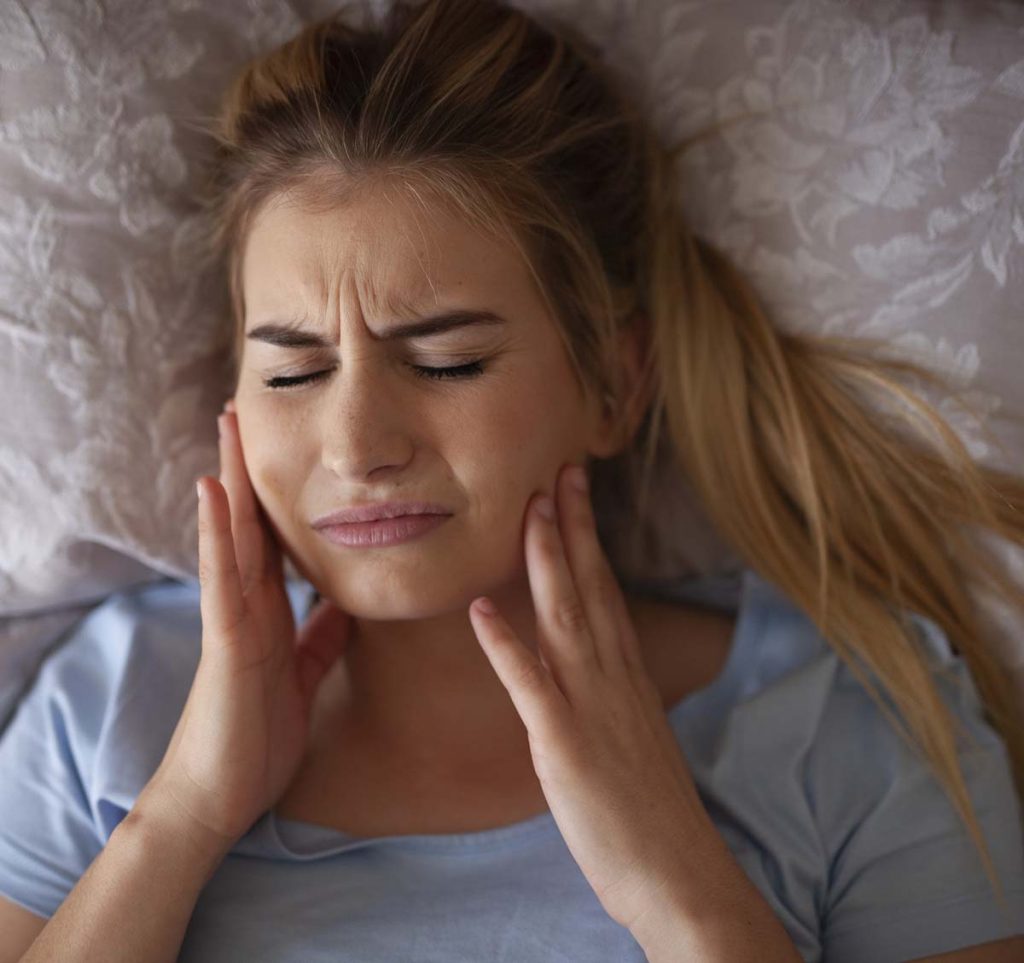Struggling with teeth grinding? Learn how it affects your oral health. Contact us today to protect your smile and live pain-free.
Teeth grinding, also known as bruxism, is a common yet often overlooked oral health issue. Many people grind or clench their teeth occasionally, but for some, it becomes a chronic problem that can lead to serious health concerns.
Need help with teeth grinding? Contact The Dental Anesthesia Center today to schedule an appointment and explore personalized solutions to protect your smile!

What is Teeth Grinding?
Teeth grinding involves clenching or gnashing your teeth, often unconsciously. It typically happens during sleep (sleep bruxism) but can also occur during the day (awake bruxism). While mild cases may not require treatment, chronic grinding can cause significant damage to your teeth and overall health.
Why is Teeth Grinding Bad for You?
Chronic teeth grinding can have several adverse effects on your oral and overall health:
- Tooth Damage
- Grinding wears down tooth enamel, increasing sensitivity and the risk of cavities.
- Severe cases can cause chipped, cracked, or flattened teeth.
- Jaw Pain and TMJ Disorders
- Persistent clenching strains the jaw muscles, leading to pain and tension.
- Over time, it can cause temporomandibular joint (TMJ) disorders, which may result in difficulty opening or closing your mouth.
- Headaches
- The pressure from grinding often leads to tension headaches, especially upon waking.
- Sleep Disruption
- Grinding your teeth can disturb your sleep or your partner’s, reducing the quality of rest.
- Gum Recession and Tooth Loss
- The excessive force from grinding can affect gum health, potentially leading to gum recession or loosening of teeth.
What Causes Teeth Grinding?
Bruxism has several potential causes, including:
- Stress and Anxiety
- Emotional stress is one of the most common triggers of teeth grinding. It can lead to unconscious clenching, especially during sleep.
- Sleep Disorders
- Conditions like sleep apnea or snoring are often linked to bruxism.
- Malocclusion (Bad Bite)
- Misaligned teeth or bite issues can cause uneven pressure, leading to grinding.
- Lifestyle Factors
- Caffeine, alcohol, and recreational drug use can increase the likelihood of grinding.
- Medications and Medical Conditions
- Certain medications, such as antidepressants or conditions like Parkinson’s disease, may contribute to bruxism.
How to Stop Grinding Your Teeth
Thankfully, there are effective strategies to reduce or eliminate teeth grinding. Here’s what you can do:
- Manage Stress
- Relaxation Techniques: Meditation, deep breathing, or yoga can help reduce stress and anxiety.
- Therapy: Cognitive-behavioral therapy (CBT) or counseling can address underlying emotional triggers.
- Use a Night Guard
- Custom-Made Mouthguards: A dentist can create a custom-fitted night guard to protect your teeth from grinding during sleep.
- Over-the-Counter Guards: While less effective than custom ones, store-bought mouthguards can offer temporary protection.
- Correct Bite Issues
- Orthodontic Treatment: Braces or aligners can address misaligned teeth.
- Dental Work: Procedures like reshaping teeth or crowns can fix uneven surfaces, causing grinding.
- Limit Stimulants
- Avoid Caffeine and Alcohol: Especially in the evening, as these can increase grinding tendencies.
- Quit Smoking: Tobacco use is linked to higher rates of bruxism.
- Practice Jaw Exercises
- Relax the Jaw: Gently massage your jaw muscles or practice jaw relaxation exercises to relieve tension.
- Avoid Chewing Non-Food Items: Refrain from chewing gum or objects like pens, as these habits can reinforce clenching.
- Improve Sleep Hygiene
- Establish a Routine: Stick to a consistent sleep schedule and create a relaxing bedtime routine.
- Address Sleep Apnea: Consult a specialist if you suspect sleep apnea or another sleep disorder.
- Take Medications, if Needed
- Muscle Relaxants: Sometimes, your doctor or dentist may prescribe medication to reduce jaw muscle tension.
- Botox: For severe cases, Botox injections may help relax overactive jaw muscles.

When to See a Dentist
If you suspect you’re grinding your teeth, consult a dentist promptly. Signs you might need professional help include:
- Persistent jaw pain or headaches
- Visible wear on your teeth
- Clicking or popping sounds in your jaw
- Frequent disturbances in sleep
Your dentist can evaluate the severity of the grinding and recommend appropriate treatment options, such as a custom night guard or referral to a specialist.
Preventing Teeth Grinding in the Long Term
- Regular Dental Checkups: Routine visits can help catch the early signs of grinding before it causes serious damage.
- Maintain a Healthy Lifestyle: A balanced diet, regular exercise, and sufficient hydration can improve your physical and mental health, reducing grinding triggers.
- Monitor Your Habits: Be mindful of clenching or grinding during the day and consciously relax your jaw.
Schedule an Appointment Today
Teeth grinding is more than a bad habit—it can seriously affect oral health and well-being. Identifying the causes and implementing preventative measures is essential for long-term relief. Whether it’s stress management, wearing a night guard, or addressing bite alignment issues, the right strategies can help you protect your teeth and improve your quality of life.
Need help with teeth grinding? Contact The Dental Anesthesia Center today to schedule an appointment and explore personalized solutions to protect your smile!

